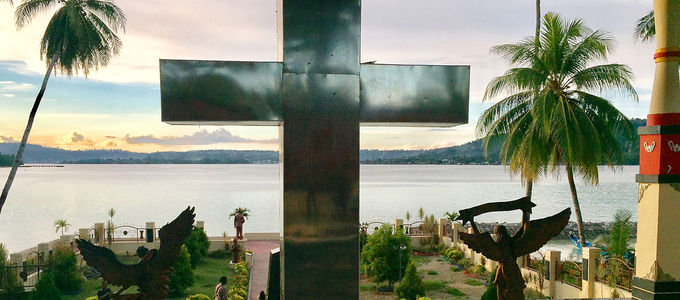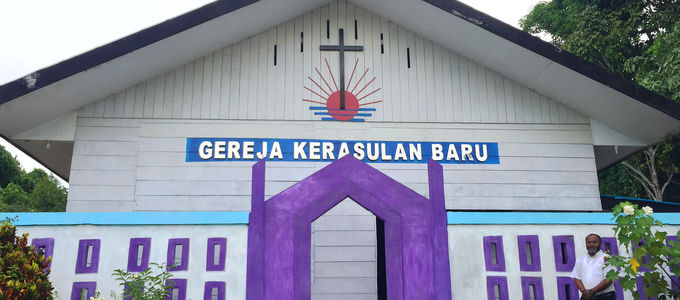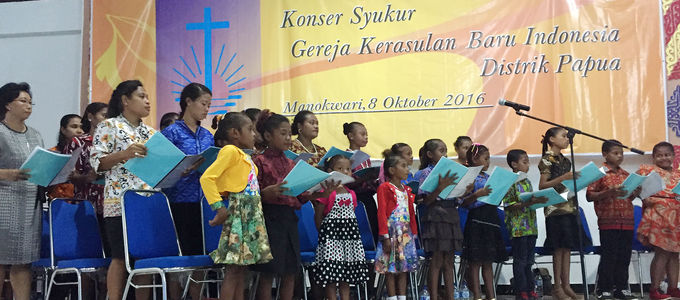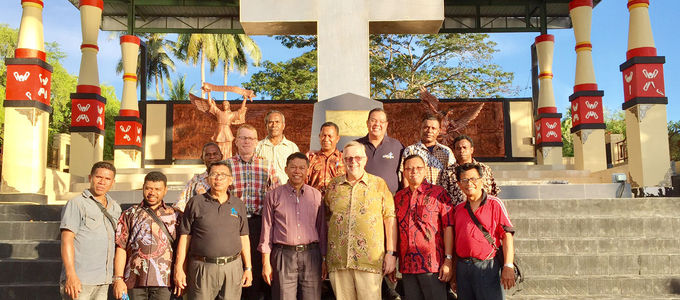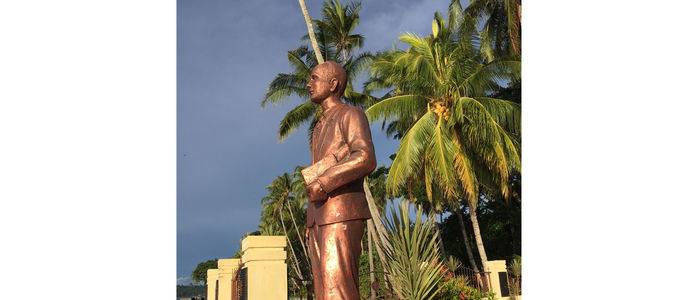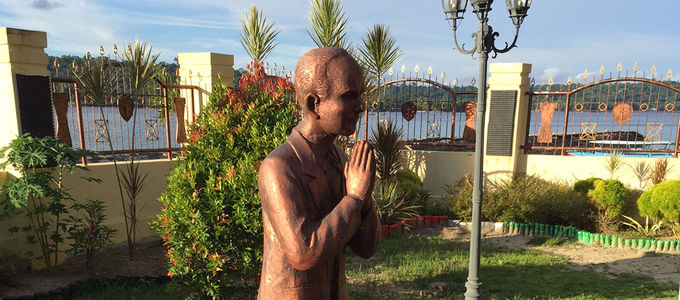
On 5 February 1855 two missionaries arrived in Papua, the western part of the island of New Guinea, to preach the gospel to the inhabitants. Even today missionaries are active on this second largest island in the world.
“We come in the name of God!” In 1855 Carl Wilhelm Ottow and Johann Gottlob Geissler, two German-born missionaries of a Dutch denomination, stepped ashore on the Indonesian island of Mansinam, close to modern Manokwari (West Papua). The two preachers, who are also linguists and Bible translators, knelt on the beach and prayed in their Dutch dialect, “Im Gotes Name tu betraten.”
Missionaries from Europe
They were driven by a sense of mission and preached the gospel of Jesus Christ to the Papuans in the years that followed. But not only that. They understood their mission and their work as a combination of preaching and social work. In fact, their work had an effect on academic education and development aid. They bought back slaves, established mission stations, founded schools and jobs. Also the first translations of biblical texts came into being with their help, and this in a country with no written tradition as yet. They started to help develop a written language, which to this day is considered the foundation for the Indonesian script.
Their mission spread. Today in Papua there are thousands of Christians.
Apostles found congregations
In 1983 Apostle Edward Deppner was sent to Indonesia by District Apostle Michael Kraus (Canada). Shortly after his arrival, Apostle Deppner met Tony Jappen, who later became the first Priest of the New Apostolic Church in Papua. District Apostle Alfons Tansahtikno, who was responsible for Indonesia later, commissioned District Evangelist Sukarmin and, several years later, District Elder Jonathan to look after the congregations in Papua. The congregations grew and, following the example of the first missionaries, a New Apostolic charity was founded also in this part of the world..
In October 2016 District Apostle Urs Hebeisen visited the sisters and brothers in Papua, where he celebrated divine services and, together with the Apostles Edy Isnugroho and Samuel Hadiwidagdo, gave seminars for ministers. “To follow Christ requires sacrifice,” the District Apostle explained in a meeting for ministers, with regard to the work of evangelization in the twenty-first century. It is not much different today. Some want proof through miracles and others want to be healed. But a true disciple has renounce many things and endure hardship, the District Apostle said.
One island, two District Churches
The western part of New Guinea, the world’s second largest island, belongs to Indonesia and is comprised of the provinces Papua and West Papua. The eastern half of the island comprises Papua New Guinea, an independent state since 1975. Geopolitically it belongs to Australia, which is looked after by District Apostle Andrew Andersen. More than a 100,000 members and nearly 5,000 ministers are found here in 620 congregations.
The western half of the island is comprised of the Indonesian provinces Papua and West Papua. There are over one thousand New Apostolic Christians here. They attend services in sixteen New Apostolic churches and two mission stations. Responsible for this region is the District Church South-East Asia , under District Apostle Urs Hebeisen.
A memorial in memory of missionaries
On his trip, District Apostle Hebeisen also visited a memorial erected in memory of the first Christian missionaries on Mansinam Island. In a prayer, the District Apostle interceded for the pioneers and asked for God’s help so that the good work can continue in the future.
A missionary of the New Apostolic Church was also thanked. District Elder Jonathan, who did pioneering work in Papua, was placed into retirement on 9 October after 43 years in the ministry. He had spent 16 years in Papua. The District Apostle commissioned Evangelist Sudirman as a District Evangelist and Priest Ulis Wanma as an Evangelist. The motto of the first missionaries in the region: “We come in the name of God,” also apply to these ministers.






